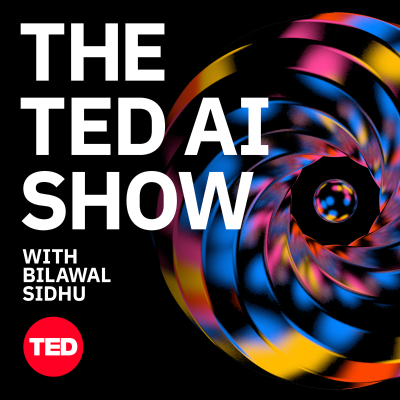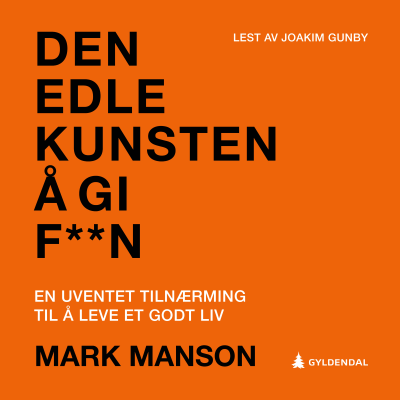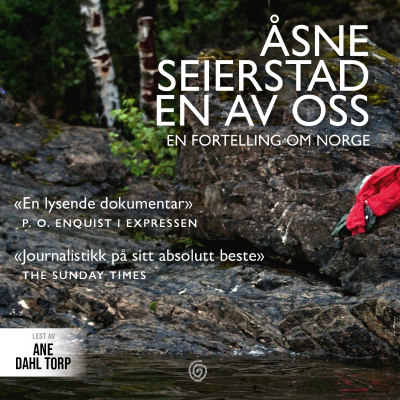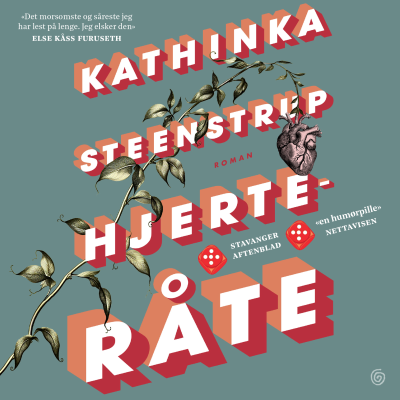
The TED AI Show
engelsk
Teknologi og vitenskap
Prøv gratis i 14 dager
99 kr / Måned etter prøveperioden.Avslutt når som helst.
- 20 timer lydbøker i måneden
- Eksklusive podkaster
- Gratis podkaster
Les mer The TED AI Show
Sure, some predictions about AI are just hype – but others suggest that everything we know is about to fundamentally change. Creative technologist Bilawal Sidhu talks with the world’s leading experts, artists, journalists, and more to explore the thrilling, sometimes terrifying, future ahead. Hosted on Acast. See acast.com/privacy for more information.
Alle episoder
36 EpisoderTrends for 2025: AI x Crypto - From Agents in Games & DePIN to Proof of Personhood and More | web3 with a16z crypto
Today, we are sharing a special episode from the chart-topping tech podcast web3 with a16z crypto. Produced by venture capital firm Andreessen Horowitz, the podcast explores the technology, people, and business ideas driving the next era of internet innovation. This episode – part of a series covering leading “Trends for 2025” – covers the intersection of crypto and AI. Topics range from why having a unique ID matters in a world of deepfakes to AI agents in games to truly autonomous chatbots. You’ll also get to hear from a16z crypto team members, including chief technology officer Eddy Lazzarin, on what they are personally excited about for 2025 given their unique view of the industry. To listen to more episodes of web3 with a16z crypto, such as part one of the series “Trends for 2025,” follow the show here: https://link.mgln.ai/2YNuuu [https://link.mgln.ai/2YNuuu]. Or can also subscribe to the a16z crypto newsletter for more trend updates, builder guides, industry reports, and more. Learn more about our flagship conference happening this April at attend.ted.com/podcast [https://attend.ted.com/podcast] ---------------------------------------- Hosted on Acast. See acast.com/privacy [https://acast.com/privacy] for more information.
The magic intelligence in the sky | Good Robot
This episode is part of a feed swap from our friend at Vox’s Unexplainable podcast. Good Robot is a miniseries hosted by Julia Longoria. Today’s episode, “The magic intelligence in the sky” examines how before AI became a mainstream obsession, one thinker sounded the alarm about its catastrophic potential. So why are so many billionaires and tech leaders worried about… paper clips? Good Robot was made in partnership with Vox’s Unexplainable team. Episodes will be released on Wednesdays and Saturdays. For more, go to vox.com/goodrobot [http://vox.com/goodrobot] Learn more about our flagship conference happening this April at attend.ted.com/podcast [https://attend.ted.com/podcast] ---------------------------------------- Hosted on Acast. See acast.com/privacy [https://acast.com/privacy] for more information.
How Pokemon Go and augmented reality are transforming how we’ll navigate the world w/ Niantic's Brian McClendon
Whether you’re trying to find your way around a new city or just looking for a place to eat, it’s become second nature to many people to turn to Google Maps to get us from point A to point B. On the last episode of this season of The TED AI Show, we’re chatting with Keyhole (now known as Google Earth) founder and current Niantic SVP of Engineering Brian McClendon. Brian and Bilawal discuss how even the most detailed digital maps have blind spots, how Pokemon Go could be an unlikely partner to fill in the blanks – and how augmented reality is making the future of navigation immersive. In the second half of the show, Bilawal recaps some of the big learnings from the first season of this show, and teases a big update about season 2. For transcripts for The TED AI Show, visit go.ted.com/TTAIS-transcripts [http://go.ted.com/TTAIS-transcripts] Learn more about our flagship conference happening this April at attend.ted.com/podcast [https://attend.ted.com/podcast] ---------------------------------------- Hosted on Acast. See acast.com/privacy [https://acast.com/privacy] for more information.
How AI digital doppelgängers could change the way we communicate w/ Synthesia CEO Victor Riparbelli
As AI technology advances, it’s becoming harder and harder to distinguish between work done by humans and work done by computers. But is AI becoming more human, or are we becoming more digital? Synthesia is a video platform that uses AI to generate lifelike video avatars, further blurring the lines between humans and their digitized lookalikes. In this episode, Bilawal sits down with Synthesia’s CEO, Victor Riparbelli, to discuss the benefits of having your own AI avatar, how companies are using this tool to improve communication, and why media literacy is more important than ever in a world of ever-thinning lines between real and fake. They dissect the risks that come with making this technology available to the public, the strict rules Synthesia has in place to protect their users, and question the ethics of having a digital clone. Tune in to see if you’ll be sending your own AI avatar to your boring meetings in the near future. For transcripts for The TED AI Show, visit go.ted.com/TTAIS-transcripts [http://go.ted.com/TTAIS-transcripts] Learn more about our flagship conference happening this April at attend.ted.com/podcast [https://attend.ted.com/podcast] ---------------------------------------- Hosted on Acast. See acast.com/privacy [https://acast.com/privacy] for more information.
Could AI really achieve consciousness? w/ neuroscientist Anil Seth
Human brains are often described as computers — machines that are “wired” to make decisions and respond to external stimuli in a way that’s not so different from the artificial intelligence that we increasingly use each day. But the difference between our brains and the computers that drive AI is consciousness – our inner world, defined by experience and awareness. Anil Seth is a professor of cognitive and computational neuroscience at the University of Oxford. He studies human consciousness and he’s concerned about the way we’ve come to think about AI as conscious minds rather than useful tools. Anil and Bilawal sit down to discuss the differences between intelligence and consciousness, the possibility of AI becoming self-aware, and the dangers of assigning human-like traits to our AI assistants. For transcripts for The TED AI Show, visit go.ted.com/TTAIS-transcripts [http://go.ted.com/TTAIS-transcripts] Learn more about our flagship conference happening this April at attend.ted.com/podcast [https://attend.ted.com/podcast] ---------------------------------------- Hosted on Acast. See acast.com/privacy [https://acast.com/privacy] for more information.
Velg abonnementet ditt
Premium
20 timer lydbøker
Eksklusive podkaster
Gratis podkaster
Avslutt når som helst
Prøv gratis i 14 dager
Deretter 99 kr / måned
Premium Plus
100 timer lydbøker
Eksklusive podkaster
Gratis podkaster
Avslutt når som helst
Prøv gratis i 14 dager
Deretter 169 kr / måned
Prøv gratis i 14 dager. 99 kr / Måned etter prøveperioden. Avslutt når som helst.















































